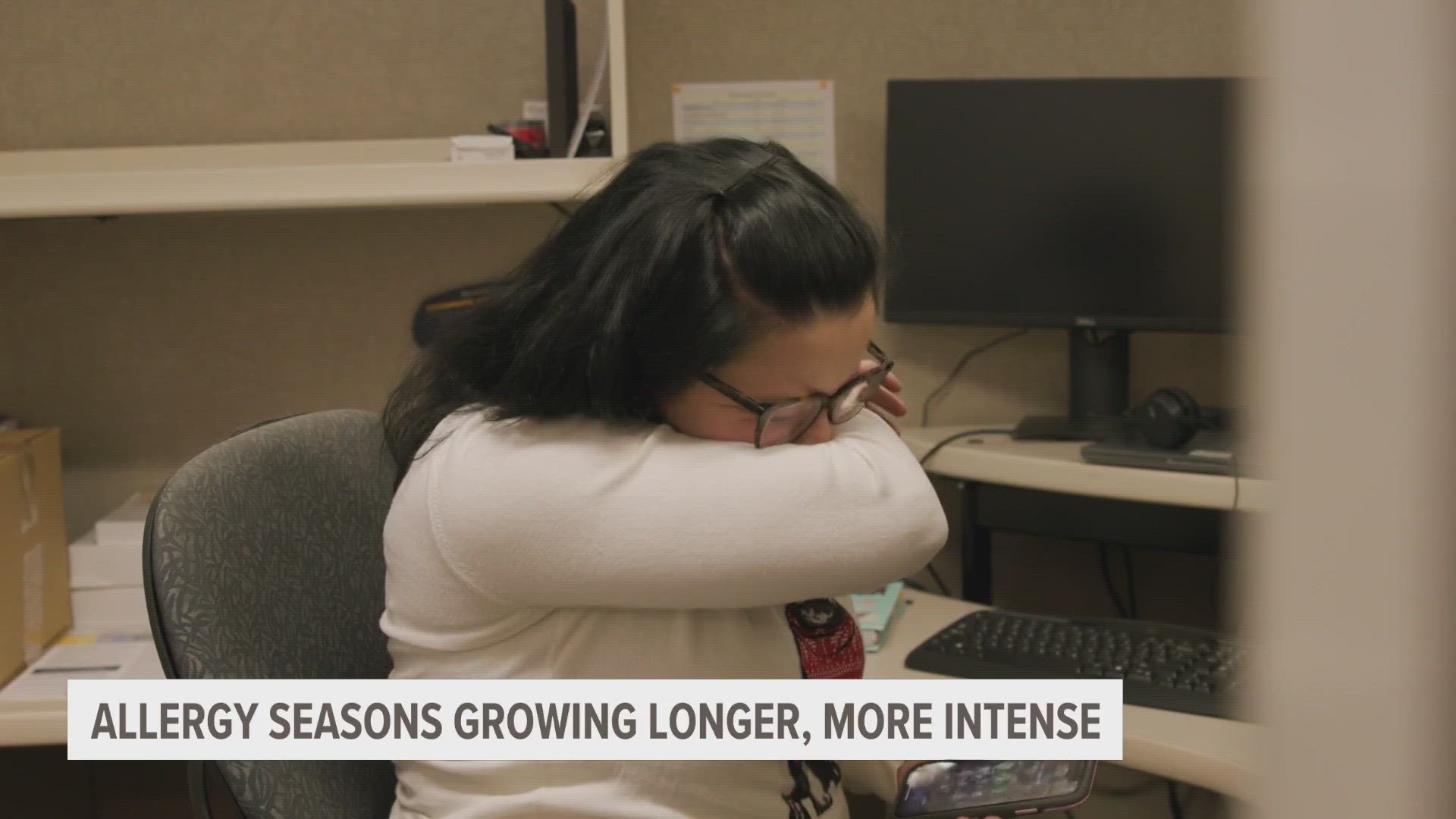GRAND RAPIDS, Mich. — Experts say that allergy seasons are continuing to get longer and more intense.
Some parts of the country see higher levels of allergens than others, and the city of Grand Rapids is in the top 30 of cities that are most challenging to live in for those with seasonal allergies.
The trees are looking much fuller in West Michigan these days, and with that, there's more pollen in the air.
"What we're finding in general is that the allergy seasons are getting a lot longer and more intense," Asthma and Allergy Foundation of America President and CEO Kenneth Mendez says.
He says that climate change is driving this in two ways.
"The growing season starts much sooner with the first tree pollen and trees blooming and then ends much later. The fall allergy season has ragweed and that dies off with the first frost. But because it's warmer, and the first frost doesn't happen till much later than that, the season gets much longer," Mendez says. "But then the other piece, because of climate change, is the additional carbon dioxide in the air, so that increases the pollen releases from plants."
More allergens in the air means more reaction from the body, like sneezing, runny nose and itchy eyes.
Grand Rapids ranks pretty high on the foundation's list of most challenging U.S. cities to live with pollen allergies, standing at number 14 because of tree pollen and number 26 overall.
"There are three things we use: pollen releases, access to allergy specialists, and then over-the-counter medication usage," Mendez says.
It's recommended to avoid being outside during high pollen release times, which is typically in the evening. Mendez also encourages keeping your shoes and coat at the door, and to wash your dog off after being outside, to avoid tracking in pollen.
Inside the home, air purifiers are also recommended, as well as air conditioning over open windows. Then, there's over-the-counter medicine and specialty care.
"If your symptoms are persisting despite using medications, there's other options such as allergy shots or allergy immunotherapy, which can really help treat your allergy symptoms long term," Dr. Mariel Benjamin, University of Michigan Health allergist, says.
A recent University of Michigan study measured the trajectory of future allergy seasons.
"Over the course of the next century, we expect that the pollen season will start up to 40 days earlier and can last up to 20 days longer, potentially, as well as the pollen levels of tree pollen, grass pollen and weed pollen being up to 200% higher than they were before," Dr. Benjamin says.
Mendez also stressed the importance of seeing a specialist if you have bad allergies to determine if you have allergic asthma. That can be triggered by an intense season.
Over 3,000 people a year die from asthma.
"And the other thing to remember is there are certain communities that are disproportionately impacted by asthma and the environment. So there's some environmental justice to this," Mendez says. "There's something called urban heat islands, where the average temperature in the city is close to four degrees higher than in a non-urban area. And certain communities tend to live in urban areas near smog and ozone, which makes it even more challenging for the allergy season."
►Make it easy to keep up to date with more stories like this. Download the 13 ON YOUR SIDE app now.
Have a news tip? Email news@13onyourside.com, visit our Facebook page or Twitter. Subscribe to our YouTube channel.

